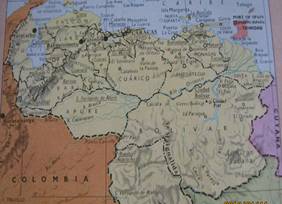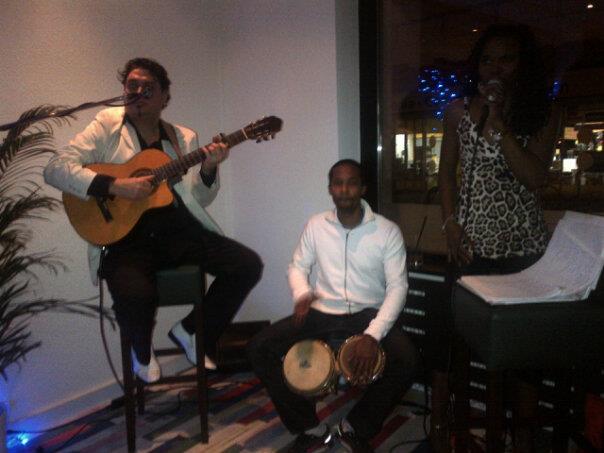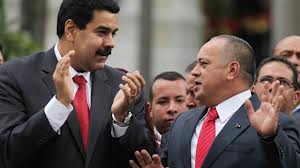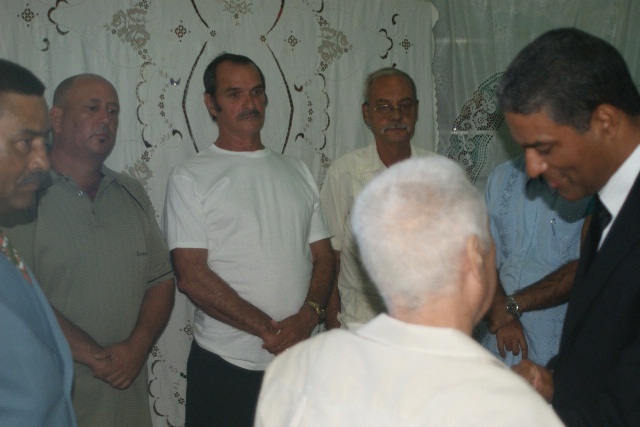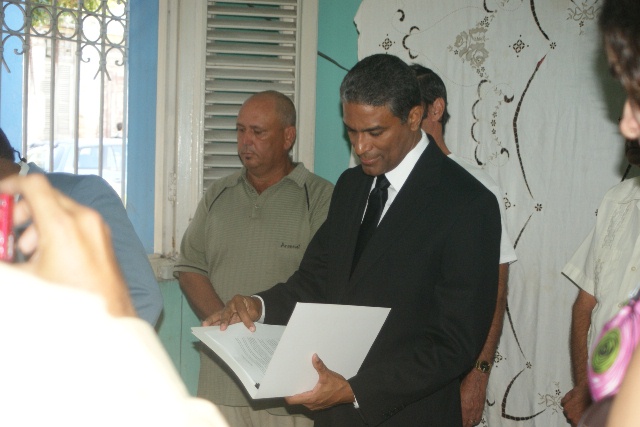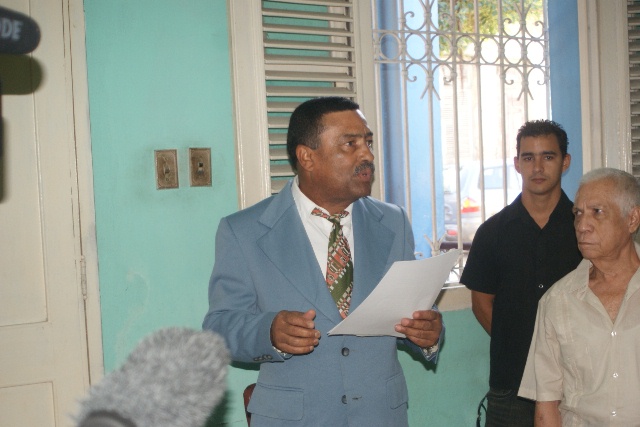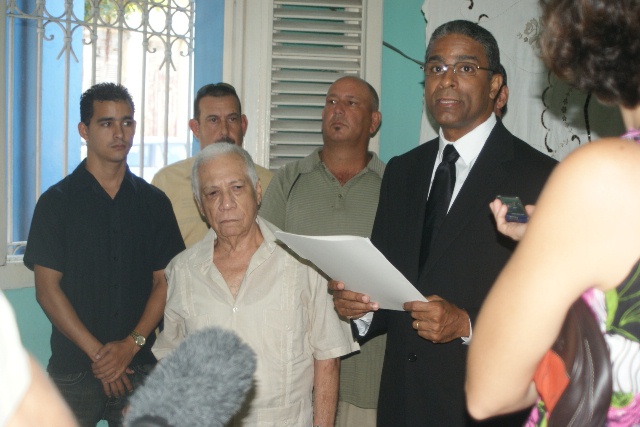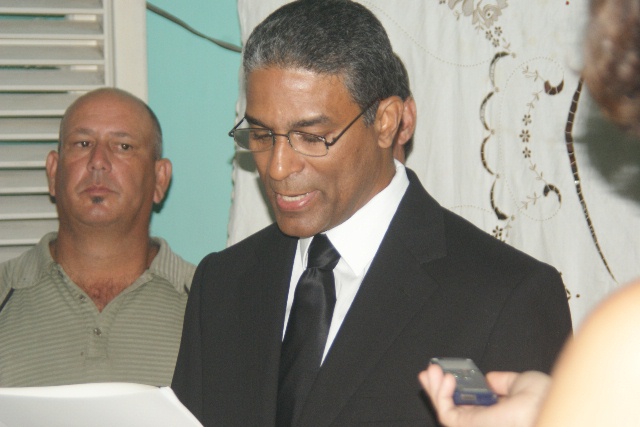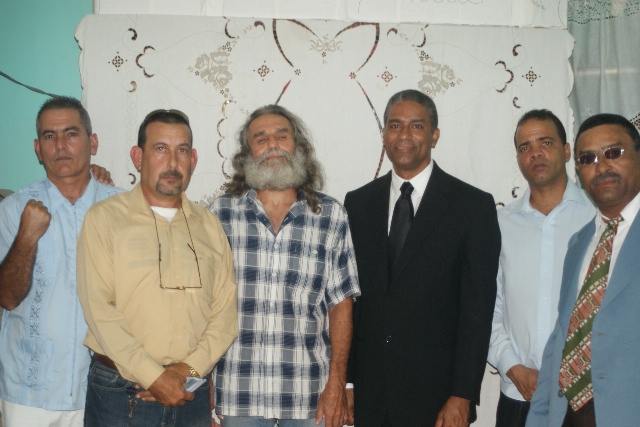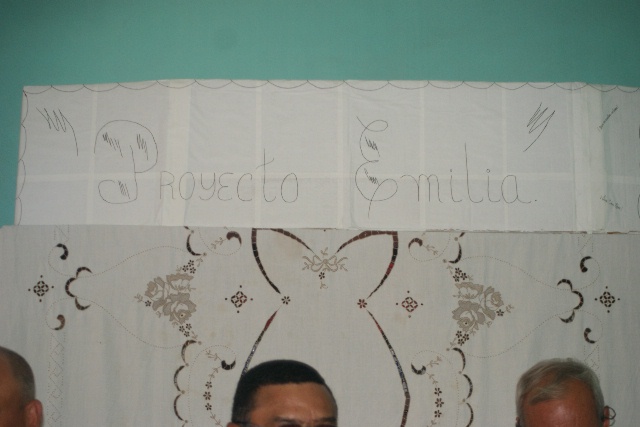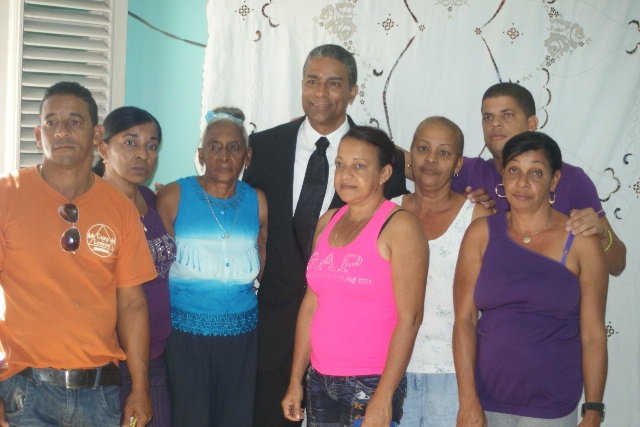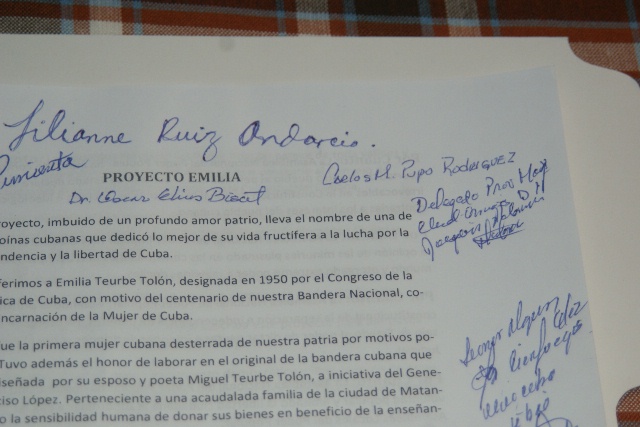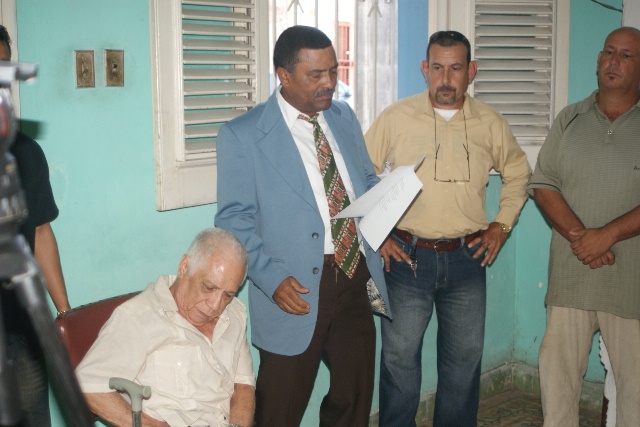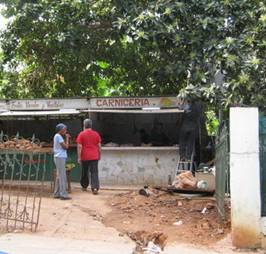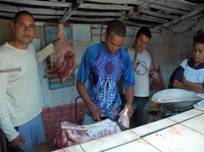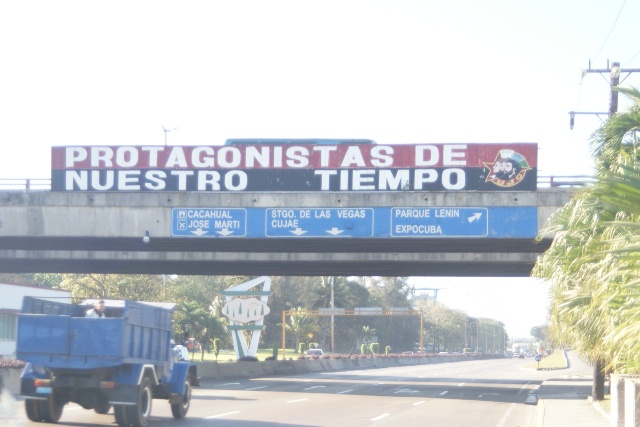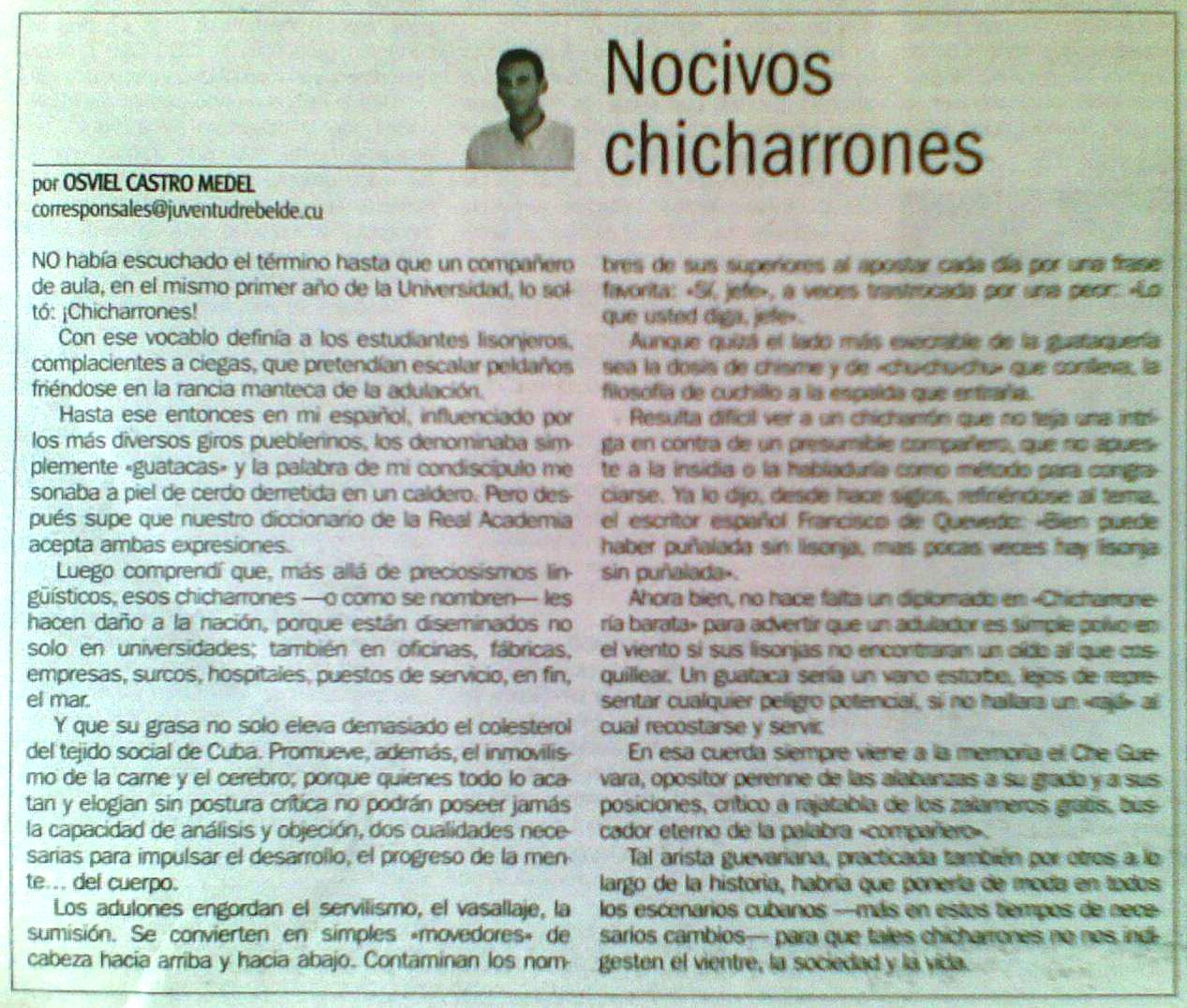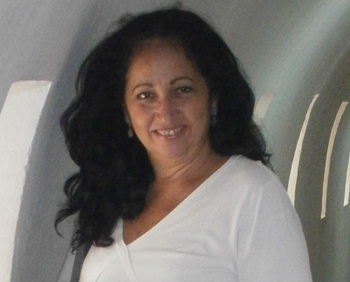 In late December, the journalist Pablo Mendez asked me for an interview for the digital space Cubanet, which was posted on January 4 this year. I am taking the liberty of reproducing it in this blog for my regular readers, while I record my thanks to both the journalist and the animators of Cubanet for giving me a place in a page read by many Cubans. I have also inserted the photo that accompanied the work of P. Mendez, readers will forgive the convenience.
In late December, the journalist Pablo Mendez asked me for an interview for the digital space Cubanet, which was posted on January 4 this year. I am taking the liberty of reproducing it in this blog for my regular readers, while I record my thanks to both the journalist and the animators of Cubanet for giving me a place in a page read by many Cubans. I have also inserted the photo that accompanied the work of P. Mendez, readers will forgive the convenience.
I would also like to express my appreciation because, as far as possible, we debated the topics raised on the interview which, as you will appreciate, are complex and extensive. Here is the interview.
A hug,
Eva-Miriam
“No revolution has made us truly free.”
Friday, January 4, 2013 | By Pablo Pascual Méndez Piña
HAVANA, Cuba, Jan, http://www.cubanet.org. The history of anti-Castro opposition runs parallel with the history of dictatorial repression. The names of the thousands of accused, shot, tortured, kidnapped, imprisoned, exiled, cleansed, marginalized and persecuted, punctuate to the end the novel of this bloody and prolonged tyranny. But there is a third dimension: that of a people looking with uncertainly toward the old regime — which still strives to bolster its cracked “revolutionary edifice” — and to the peaceful opposition, which, for many, continues to be torn between dispersion and competition to monopolize the limelight.
A single reality — according to Ortega y Gasset — breaks into many divergent realities when viewed from different angles. So through informal consultations, we have formulated seven questions about the opposition, derived from the analysis of an interesting academic to the interesting reasoning of a street sweeper.
In seeking to pave the way toward understanding these different views, we request the valuable assistance of Miriam Celaya González, with a degree in Art History, former researcher at the Department of Archaeology of the Academy of Sciences of Cuba, independent digital journalist, administrator of the blog Without Evasion, and regular contributor to publications such as Diario de Cuba, Voices Magazine, Coexistence and others.
Miriam cheerfully agreed to respond to these 7 questions for Cubanet:
Cubanet: Do you think that our dissidence remains stuck in the past and politically fragmented?
Miriam Celaya: I don’t like archetypes, so I’ll assume that what you call “our dissidence” is the totality of an extremely varied spectrum consisting of opposition groups and parties of all denominations, independent journalists and bloggers, and many sectors of independent civil society, also multiple and diverse, ranging from independent librarians to artists, writers and animators of many civic projects.
I also consider as dissident all Cubans who are dissatisfied with the official political model — even though they don’t openly express it, nor are they tied to any of the sectors mentioned above — and the tens of thousands of emigrants, regardless of whether they are called “economic emigration” or “political emigration,” because to leave Cuba is the same as rejecting in some way the established socio-political and economic system. The dissidence is not a monolithic and uniform block, so it doesn’t seem appropriate to me to make generalizations.
Now, a part of this dissidence, in fact, seems anchored to the past and displays an exhaustion in its discourse. This is natural because — unlike sectors who base their work on civic projects — the political projects are obliged to promote governance alternatives to overcome the problems of the nation as a whole, they are more pressed for time, and they must show results in reasonable periods.
For example, while the work of independent journalism is to inform, report, analyze, disseminate, or that of the independent libraries and other civic projects is to directly or indirectly promote civic education, which are permanent and inexhaustible issues, political parties have an aspiration and obligation to propose viable alternatives for holding elections and changing the political system of the country. Otherwise they would not be political parties.
When these proposals don’t emerge, don’t catch on in wide sectors or don’t provoke changes, the political parties are exhausted. So far there do not exist — or they aren’t visible — any parties that offer a workable alternative in confronting the dictatorial power, because of the nature of the dictatorship, but also because the political opposition lacks maturity and because a large part of it — like the government it confronts — is weighed down with secular evils, the legacy of our idiosyncrasy and our history, such as caudillismo (warlordism), Messianism, and immediacy, among others.
The political fragmentation I don’t see as a problem. Every democratic society is politically fragmented, and this is healthy, because it allows a variety of proposals, the chance to choose among them, and because it forces politicians to compete among themselves, if they want to succeed.
However, this fragmentation should not mean the disqualification of one or another proposal, nor impede the coordination and consensus capable of developing common platforms for confront governmental autocracy. This consensus, sadly, although currently it seems to be generated among more or less numerous groups, hasn’t been consolidated, nor does it yet constitute a strong alternative to power.
CM: Isn’t the Citizen Demand For Another Cuba a new version of the Varela Project? At what point is it a waste of time to make demands of a regime that is deaf to any proposal to democratize the country?
MC: I do not think the Citizen Demand for Another Cuba is a new version of the Varela Project. Each of these projects has its own function, and distinct objectives.
The Varela Project was best known at that time–largely thanks to the publicity achieved from the visit of former U.S. President Jimmy Carter to Cuba, who mentioned it in the Great Hall of the University of Havana–and they managed gather a huge number of signatures, work in which many activists participated, not only of the Christian Liberation Movement, but also from other opposition political parties.
But the Varela Project was backed by the actual Electoral Law of this government, somehow legitimized this Law, regardless of whether they had the power to discern the cracks and try to take advantage of them to the benefit of democracy, which is a great achievement.
However, because it was based on the Cuban government’s own laws, it led to a “counter-project”, calling for ratification of socialism as an eternal model, for which they collected eight million signatures within Cuba. The dictatorship has the option of changing or violating its own laws, or simply ignoring legal demands, so it often takes advantage of any movement that tries to maneuver from within the laws that were created to perpetuate the dictatorial power.
Another aspect that few have considered is whether just changing the electoral process could cause significant changes in Cuba. Personally, I think not. I think the first thing we need is to develop responsible citizens, free and able to take on the challenge of choosing freely. It is a very long-term task, but unavoidable. Ours is a people marked by fear, distrust and civic orphanage, problems heavily accented over more than half a century of totalitarian power. Society lacks democratic referents, nor was there a civic culture rooted in the years leading up to Castro Republic.
I would argue that if free elections were held next week in Cuba, people would not be very clear about who to vote for, even if the current regime is exhausted. A society bereft of civic-mindedness is not exactly the best scenario for elections, if you want to achieve a true and stable democracy.
To magnify the utility of elections as a vehicle at achieve democracy in Cuba, it seems to me was a political naiveté of the Varela Project, and I believe that this opinion has brought me bitter and hostile critics among the opponents themselves, because in the end we Cubans, as happens with the government, tend to lurch between two extremes: if you ask about some dissident project, you are “the enemy,” “you’re destroying the unity” (which never existed), or “you’re working for the government.”
We also tend to want quick fixes and expect quick or magical solutions, without much effort. Clearly it would be less tiring if our many pressing problems would end after an election, but this isn’t realistic. After the Castro regime the holding of democratic elections which will happen one say, a stage of hard struggle will begin if we want to consolidate a democratic Cuba; no serious politician doubts this.
The case of the Citizen Demand for Another Cuba is different, being is based on the existence of international covenants, enshrined in the UN, which were signed by the Cuban government. Dictatorship has no ability to change these Covenants, so in some ways it is politically trapped: either ratify the covenants signed in February 2008, with the consequences that would result from opening up certain freedoms within the Island, or expose the lack of political will of this government to comply with international commitments generally referred to in the Universal Declaration of Human Rights, to which it is a signatory, and the Covenants in particular. This implies a high political cost which, it seems, the regime is willing to pay, but it has consequences in the medium and long-term. The Demand for Another Cuba is also broader, more inclusive than the Varela Project, in covering all the evils that afflict Cuba, because it is not limited only to the issue of elections.
To put it in perspective, the Varela Project was more “practical” and immediate, while the Demand for Another Cuba is more symbolic, but it is also more comprehensive and widespread in areas that could derail the system if these Covenants were actually ratified. Of course, I do not think the government is going to ratify them, hence the symbolic character: an action whose main value is to show the hypocrisy of the Cuban government and civic abandonment of its people.
Both the Varela Project and the Citizen Demand for Another Cuba, with their successes or limitations, are valid in both betting on democracy as proposals based on civic-mindedness and not ideology.
Each of these actions is the daughter of their time, although the Varela Project was more circumstantial, the Citizen Demand for Another Cuba, being based on universal agreements, is permanent. But in essence, neither of these two projects is a magic formula that encloses within it the elixir of democracy, nor do they presuppose that they are only way to pierce the wall of the dictatorship. Both are steps or partial proposals of a much more complex whole.
As to whether a Demand to the Cuban government, which is deaf, is a waste of time, I do not think so. What are the alternatives? Uprisings, Violence, armed conflict, terrorism, civil war, the emigration of everyone? No. Violence only generate more violence in a society full of rancor, and badly fractured and biased by the polarization of half a century of dictatorship, bereft of rights, citizenship and independent or at least autonomous institutions.
Violence is not an option: it would be the end of the Cuban nation. There are numerous examples that demonstrate the superiority of civic resistance against violence. Certainly the civic path is longer, but it consolidates peace and democracy and better heals wounds and scars.
We have to escape the temptation of “rapid and radical” solutions because the results are very misleading. The main example is here at home: in July 1953, there was a violent assault on the Moncada barracks of the constitutional army; in December 1956, a brief guerrilla war began; and in January 1959, the Revolution took power by force.
It took less than six years for a clique to seize the country, enthrone itself in power and sustain itself, to this day, by force of repression and violence: we have neither peace nor democracy, and the gap between the powerful and the society as a whole grows ever wider, despite the fact that at its time, the Revolutionary project managed to win over a large majority of the Cuban population.
CN: Do you think that the opposition movement actually offers a political alternative to Cuba, or just wants the regime to introduce democratic changes?
MC: Again I say to you I do not like stereotypes. There is no “opposition movement in Cuba,” but rather many opposition groups who do not subscribe to what might be called a movement. A movement, I think, must have at least as minimum essentials,a common platform, a concerted program or proposal, and a consensus structure and timetables for implementing that program. That does not exist in Cuba.
However, I do believe that some projects of the opposition have interesting proposals. The opposition does not “expect the regime to introduce democratic changes.” No dictatorship voluntarily introduced changes that eventually lead to the loss of its political power, and the opponents know this well. Despite all the limitations, the opposition has been forcing this government to change, to demonstrate that in Cuba proposals and sectors opposed to it do exist, and they have sustained a resistance that has been grown and diversified in recent years.
As to whether the opposition is a political alternative to the government, I don’t think we have that, at least not on the scale we need. However, we are witnessing an interesting process: at present, the government retains full power, the army, the police, the institutions, the media and the declining economy, but it doesn’t offer an alternative to overcome the crisis.
The so-called “Raulista reforms” and the obsolete guidelines resulting from the last congress of the Cuban Communist Party can not even remotely be considered an alternative. Rather it is the rhetoric of the past, the swan song of the old guerrilla power. The government is politically exhausted and unable to renew itself. It may create a political stage favorable to the emergence of alternatives from the opposition.
I have the impression that dissent is renewing and enriching itself while governmental power is only being recycled and regressing within the same caste and with the old recipes, with just a slight touch up for the occasion. It’s possible that in these conditions there could also be a renewal of the alternatives of the dissidence and new leaders and new proposals could emerge, perhaps interesting alliances and political platforms. We must be prepared for this “reborn opposition” (let’s call it that).
CN: According to informal surveys, seven in ten respondents believe that the opposition represents the only hope for democratic change in Cuba. But, isn’t it time for them to offer the people a more robust and coherent political program?
MC: Look, surveys are often fickle, especially in a country where people are used to hiding or masking what they really think. For the rest, informal surveys also only allow only informal approaches to the phenomena in question. Most ordinary people I know refuse to offer an opinion or political commitment, there is a kind of indifference: “I’m not interested in politics,” some say, and with this they feel wise and prudent, or maybe they think this makes them safe in a reality that is actually choking us all.
However, even for those who do not believe that the opposition constitutes even a hope for the democratization of Cuba, what has been demonstrated is that the government exhausted its possibilities and today is a deterrent to hope. Some believe that anything is better than this government–which, at least in my opinion, is also very dangerous–but I think in the opposition there are proposals and valuable figures and this is the sector that has been welcoming and nurturing for many years–with its successes and failures–the germs of future Cuban democracy.
Of course there will be other sectors that will be incorporated. I am encouraged to see many new faces and young people who have a voice and opinions, who don’t ask permission or apologize for expressing their ideas and who do not have any historical compromise with the old ruling classes. Young people who feel capable and free, which is far from the obedient and grateful spirit that they tried (and in many cases succeeded) to instill in previous generations. I think they will bring valuable ideas to contribute to democracy, and they will also be a source of energy and hope for this dying Cuba.
To offer a strong and consistent political program, there must be political individuals, i.e. citizens. You ask if the time has come for the opposition to offer a coherent political program to the people. I, for my part, I think it is time that the people are able to demand rights and proposals from the policymakers, those who are there now those who come after.
In the dissidence we are accustomed to critically judging the politicians, and that’s fine, but there is a collective responsibility for the ills of Cuba. There is a widespread bias that tends to victimize the people, as if it were an amorphous subnormal creature: the poor Cubans suffering from a dictatorship, overwhelmed and terrified people suffering under the boot of tyrants must be released.
But to victimize an entire people is a messianic principle that barely conceals inordinate vanity. It is, above all, to underestimate people, given their inability to make decisions. So I prefer not to take condescending positions, and I put the ball back in their court: when anyone asks me what Cuban dissidents are doing to change things, I ask in my turn, “what are you doing?”
Someone who doesn’t believe in the system but belongs to the CDR (Committee for the Defense of the Revolution), who pays dues to the false union, who marches and attends official acts and votes when elections are called, has no moral authority to demand that others change things for him. That is simply immoral.
That is, I think we have to force people to look in the mirror, it’s a necessary shock therapy, as bad as it could be, because in the back of my consciousness I am convinced that no one person has the necessary qualifications to release an entire captive nation, be it a tyrant or you yourself.
As for the future, the most promising political program could emerge at any time, perhaps sooner than we imagine, but then we have citizens capable of carrying them out. It wouldn’t be any achievement to have a people-flock that ceases to obey an old program, of an archaic obsolete party, just to submit tamely to another program and another party that also would eventually grow old. It’s precisely about eliminating the syndrome of the flock, we must help people to infect each other with the virus of citizenship. Only when free individuals themselves are the sentinels of democracy will political programs have real meaning and value. I’m not sure if that answers your question.
CN: We continue to believe in the maxim that “revolutions are made only by a few”, is it possible that the same setbacks of more than a century ago, such as warlordism and political stubbornness, are the vernacular anchors that impede the foundation of a project of truly modern political opposition?
MC: But it is true that revolutions are made by a few, it always has been, because the ideas that mobilize masses usually arise from elites. Look at the History of Cuba itself: a group of landowners started the Yara Revolution in 1868. Marti and a small group of patriots were the main leaders of the Revolution of 1895. And later, Fidel Castro and a band of revolutionaries took power not only from Batista, but seized the country and established the longest dictatorship in this hemisphere.
See if a group of elites can be powerful, who are still there: worn out antiques in broken health, but fiercely dominating a population in which more than 70% of individuals were born after 1959, that is, they did not participate of revolution nor did they ask anyone to do it for them.
No revolution has made us truly free, nor has one brought us democracy. To be honest I must say that I do not approve of revolutions, I have serious reservations about them both as generally rapid and violent processes, with a highly destructive power, with a high share of death and pain. Often they are more of a setback to progress, and we Cubans have experienced this firsthand. I’d rather support a gradual evolution, concerted and peaceful, than be part of a social revolution.
With regards to warlordism and political stubbornness, we are caught in the vernacular, which hinders the establishment of a political project from the opposition. It is also weighing down the government. And I would say there are other things dragging us down, of which almost nobody wants to talk, but they are there, piercing the foundations of almost everyone and the deeper “I” of many: Messianism (as I mentioned before), egomania, corruption, nepotism, lack of political vision, inability to absorb criticism, civic irresponsibility, immaturity … and perhaps a dozen more ornaments.
One of the biggest limitations we suffer is the ignorance of our own history. For example, would you believe that there are many opponents, including leaders, who do not know how many constitutions have existed in Cuba? And if such ignorance was not enough, they simply spit at you that this is already passé, that what’s important is to found a new and different Cuba. It’s serious, because someone very wise said quite rightly that to ignore history dooms us to repeat past mistakes, but that is our reality.
Some even contemptuously disrespect the founding fathers. Look, it’s not about a cult of personality or magnifying the hero over the man, but every nation is heir to a story, or it’s not a nation. We lack roots, that’s the truth.
CN: With regards to the political influence of Western nations, such as the United States and the European Union, to what extent do you think this could be a positive for a new approach to our sovereignty and democracy in particular?
MC: I think the whole political process can and should assimilate the lessons and positive experiences of other nations. We are in times of globalization, and that is not only inevitable, but it does not have to be negative. Foreign influences do not necessarily mean the renunciation of sovereignty, as evidenced by numerous processes of past and recent history.
In particular the postwar scenarios, after the Second World War, with the new world political map, the end of the Cold War, and, more recently, the democratization processes that have been taking place since 2010 in the Arab world, among others, show that democracy in each case is influenced and assumes various native features, at the same time inserting itself harmoniously into the global panorama. Democracies are not “pure,” nor are sovereignties without foreign influences. In fact, it has never existed.
Now, Cuba is a Western nation, so the influence of Western-style democracies are not only the most similar to our own idiosyncrasies and culture, but also closer to what most Cubans aspire to. Of course the current paradigms are the most developed nations, the U.S. and the European Union, which does not exclude some interesting experiences in our region and elsewhere. I’m thinking, for example, in the progress that has been made in countries like Brazil and the spaces for democracy that have been consolidating in Chile in recent decades, just to offer some examples.
CN: If an abrupt change of regime occurred in Cuba, is the Cuban opposition prepared to deal with the new circumstances? Are they fit to govern the country? Are there opposition presidential candidates?
MC: It’s a difficult question to answer in the present circumstances, and impossible to exhaust in a small space. I think it would better encourage a broad discussion with a variety of opinions, but trying to think out loud, I still know that my answer will be incomplete and insufficient.
In my opinion, at the moment it does not seem that there will be an abrupt change of regime in Cuba (although one can not rule out that possibility). Everything indicates that, in the absence of institutions and proposals capable of taking on all the change, it would be appropriate to establish a dialogue between the government and representatives of the full spectrum of civil society opposition and alternative, but this is, without doubt, an ideal vision.
I’m thinking that the best thing would be something like what happened in Poland, for example, a paradigm of peaceful transition. The Czech case is another happy example, and that of Spain at its time, now somewhat distant in time.
Of course, in these cases there were strong civic structures contained within the culture and tradition of these people, which is not so in our case. The Cuban government does not feel sufficiently pressured by the opposition to recognize it as a partner.
On the other hand, it does not want to cede a single iota of power, or recognize its own limitations, which lengthens the agony of the regime, but also ours. However, while we Cubans certainly do not have a trade union like Solidarity, we can not ignore the presence of a peaceful opposition has been able to sustain itself over many years, nor can we ignore the emergence and exponential growth of many independent civil society groups that are important agents of change and bring their own agendas. The Cuba of today is not equal to that of just five years ago, much less that of the ’90s.
Today we are witnessing a rapidly changing reality in Cuba. Something has started to move and there are situations that can transform all scenarios in a moment. For example, right now the health situation of Venezuelan President could mark a change regarding the oil subsidies of that nation which keep the Cuban dictatorship in power. One element alone does not determine the changes, but combined with other factors, such as the crisis of the system, the absence of a viable government project, the despair and lack of confidence in the formal structures and proposals, coupled with rising sectors of the dissatisfied, could all lead to an unpredictable outcome, something as fragile as this could affect the teetering balance of power in the island.
Of course I do not know all the cards in this complicated deck and forecasts are always vague when it comes to policy, especially in a country where secrecy is the sign of “information” and people have no access to communications and media, beyond the official.
I think that, when the moment comes, the opposition — or at least some sectors of it — will assume their role. There will be a surge of opposition groups and we will see numerous parties of the most diverse denominations emerge, but in the medium to long-term the most prepares and mature will prevail, the most inclusive and those who receive more support.
It will be a very interesting scenario where there will also be a great struggle of interests, it will be difficult and complex, but I expect there will be freedom of expression and of the press, they will play a leading role in the formation and dissemination of public opinion.
Whether the opponents are suitable or not for running the country remains to be seen, but they deserve the opportunity to prove themselves. I think there are many potential leaders that haven’t emerged or that still aren’t visible. In any event, I think the most important will be to form a suitable nation and then we will have suitable politicians.
January 7 2013


